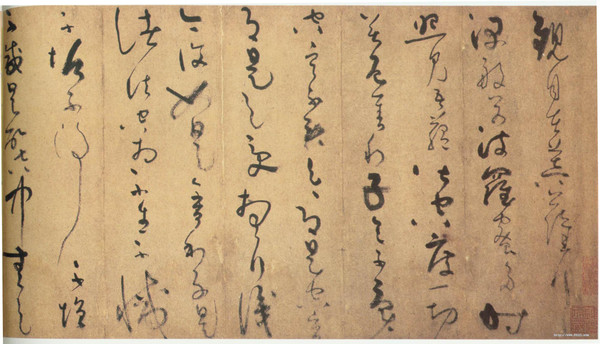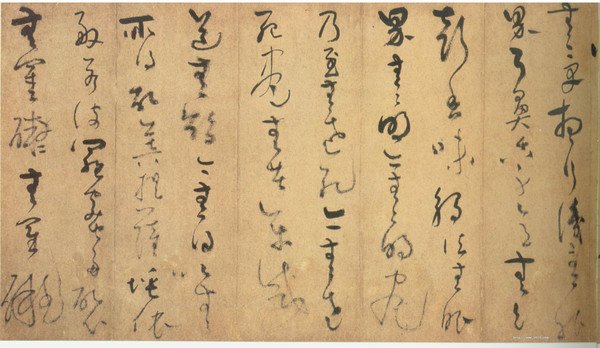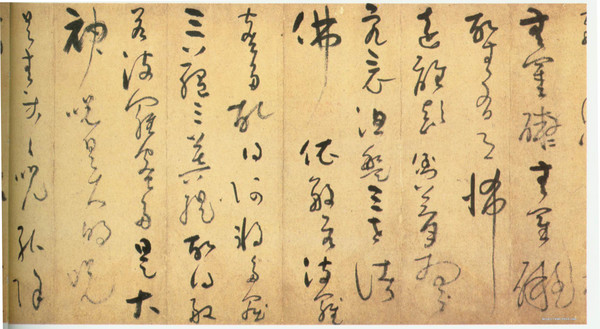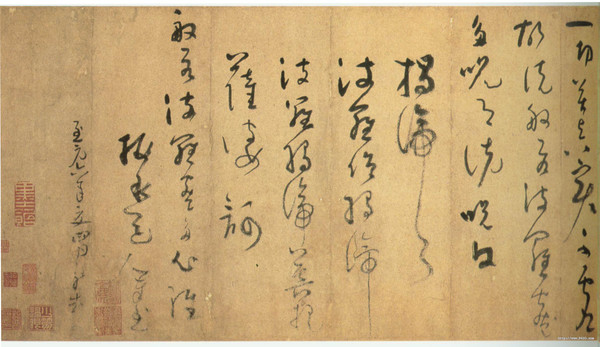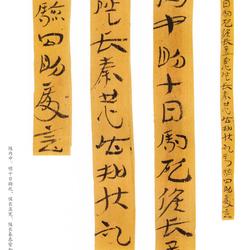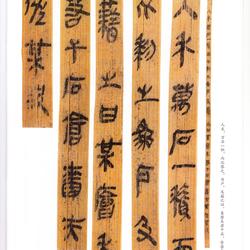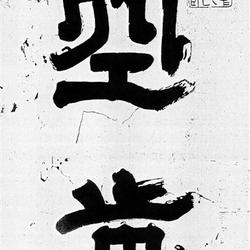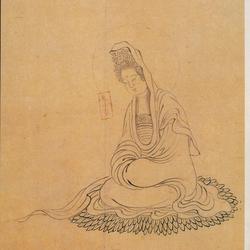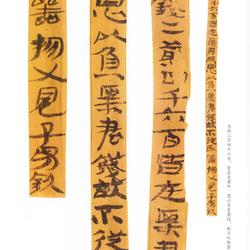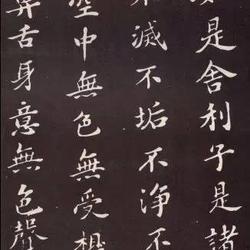Wu Zhen (1280-1354), courtesy name Zhonggui, also known as Meihua Taoist. A native of Weitang, Jiaxing, Zhejiang. His family was extremely wealthy, so he studied the Book of Changes from Liu Tianji in Piling (today's Changzhou). "In Zhengzheng Xinmao (1351), he was awarded a Jinshi in the imperial examination list", "because of his family background, Song Xunqi lived in seclusion and did not serve as an official, and entertained himself with poetry and wine", "I tried Yishu to set up Si Wuchuan, recommending people to forgive their faults, and saying He is a warning to the world and has the style of being strict and peaceful." ("Yimen Wu Family Genealogy") was a reclusive person who would rather be reduced to selling divination for a living than to be an official. He was good at Buddhism and Taoism, and he often made friends with monks, Taoists and poor people. He called himself Mei novice monk and old novice monk, and inscribed his tombstone "Plum Blossom monk" on his tombstone. He is good at poetry and calligraphy. The painting's name is You Long, who is as famous as Huang Gongwang, Ni Zan and Wang Meng, and is also known as the "Four Masters of the Yuan Dynasty". There are "Mei Hua Taoist's Ink Remains" and "Mei Hua An Manuscript" handed down from generation to generation.
Wu Zhen's "Prajnaparamita Heart Sutra" cursive 